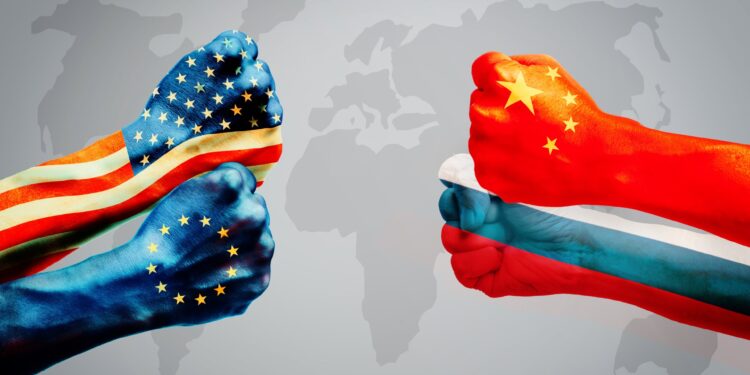In a series of moves that could impact global trade, both the United States and China have begun imposing tough measures to regulate imports and address “unfair” trade practices in bilateral trade. These measures reflect ongoing geopolitical tensions and their impact on international markets.
China’s steel and aluminum under Washington’s eye
The French Press Agency said that the United States announced imposing new restrictions on steel and aluminum imports from Mexico, to prevent goods of Chinese origin from evading customs duties.
The move by US President Joe Biden’s administration, according to AFP, aims to protect against China’s excess industrial capacity, which Washington claims leads to the dumping of goods at unfair prices in other markets.
According to Bloomberg, steel imported from Mexico will only be exempt from tariffs if it is melted and cast in Mexico, the United States or Canada.
Otherwise, a 25% duty will be imposed. Similarly, aluminum imports from Mexico that contain primary aluminum melted or cast in China, Belarus, Iran or Russia will face a 10% duty, AFP reported.
According to White House economic adviser Lael Brainard, these measures are necessary to close loopholes that countries like China exploit to avoid U.S. tariffs. “Chinese steel and aluminum entering the U.S. market through Mexico avoids tariffs, undermines our investments, and hurts American workers in states like Pennsylvania and Ohio,” Brainard said.
The measures come as Biden seeks support from voters in key swing states, including Pennsylvania, ahead of the upcoming election, the agency said. “China and other countries must not be allowed to exploit trade with our neighbors to avoid U.S. trade enforcement,” said Scott Paul, president of the Alliance for American Manufacturing.
Nearly 90% of Mexico’s 3.8 million tons of steel imports are already processed in North America, while the rest, coming from countries like China, will now face these new restrictions. Of the 105,000 metric tons of aluminum imported from Mexico, 94% was processed in the United States, Canada or Mexico.
China investigates EU support measures
In a counter-move, China announced a formal investigation into the EU’s subsidy measures and investment barriers, following a series of measures by Brussels targeting Chinese trade practices.
The statement by the Chinese Ministry of Commerce, reported by the French agency, highlighted concerns about trade and investment barriers imposed by the European Union on Chinese companies.
The European Commission has recently taken several measures against China. These include investigating state subsidies to China Railway Construction Corporation (CRRC) and alleged discriminatory practices in the public markets for medical devices, automobile manufacturing, and wind energy. In early July, the EU provisionally imposed additional tariffs of up to 38% on imported Chinese electric vehicles due to unfair state subsidies.
The investigation, prompted by a complaint from the chamber of commerce, is focusing on products such as locomotives, photovoltaic energy and wind energy, the commerce ministry said. The probe is set to be completed by early next year, the agency said.
These actions by both the United States and China highlight the escalating trade tensions and their potential to disrupt global markets. As each country implements policies to protect its industries and combat foreign trade practices, the effects are being felt across sectors around the world.



